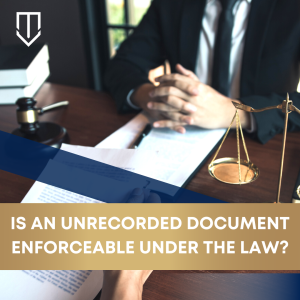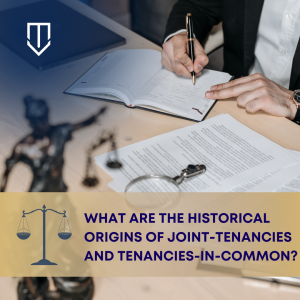 Service of process is a crucially important part of every lawsuit in California. If a defendant is not served and thus does not receive notice of a lawsuit, then any judgment entered against them is void for lack of jurisdiction.
Service of process is a crucially important part of every lawsuit in California. If a defendant is not served and thus does not receive notice of a lawsuit, then any judgment entered against them is void for lack of jurisdiction.
While service of process can usually be accomplished with a registered process server or Sheriff, the situation becomes murky when “unknown” defendants are involved. Quiet title actions involve such unknown defendants, who are designated as any and all persons claiming an interest in the property at issue.
But in order is get a valid judgment against these unknown persons, any plaintiff must first follow the exact statutory requirements required to effectuate them with proper service by publication. Failure to follow these requirements can result in future legal action, even after a quiet title lawsuit that is designed to put title issues to rest. The attorneys at Underwood Law Firm are familiar with this process and are here to help guide you through service in quiet title actions.
 California Partition Law Blog
California Partition Law Blog


 A pre-condemnation offer is a formal offer based on an appraisal that the government needs to offer a property owner prior to filing a condemnation claim in court. Condemnation is the special word given to eminent domain actions and should not be confused with the condemnation that is associated with those actions taken by the government against properties that pose health risks and other hazards to the public.
A pre-condemnation offer is a formal offer based on an appraisal that the government needs to offer a property owner prior to filing a condemnation claim in court. Condemnation is the special word given to eminent domain actions and should not be confused with the condemnation that is associated with those actions taken by the government against properties that pose health risks and other hazards to the public. Sometimes, two or more persons claim to have an interest in the same piece of property. If these interests conflict, then the courts have to step in to adjudicate the dispute and decide whose title is true. But things can get messy when both parties appear to have valid deeds, free or forgery, or other impropriety.
Sometimes, two or more persons claim to have an interest in the same piece of property. If these interests conflict, then the courts have to step in to adjudicate the dispute and decide whose title is true. But things can get messy when both parties appear to have valid deeds, free or forgery, or other impropriety. American law has its roots in the laws of England. As such, many of the laws still on the books in the 21st Century depend on what English judges thought prior to our War for Independence began in 1776. Because our modern laws go back centuries since before the United States was a country, we should care about how our legal terms were originally understood as they may implicate a judge’s decision today. The most important of all the English Judges who influenced our modern laws was most likely Sir William Blackstone.
American law has its roots in the laws of England. As such, many of the laws still on the books in the 21st Century depend on what English judges thought prior to our War for Independence began in 1776. Because our modern laws go back centuries since before the United States was a country, we should care about how our legal terms were originally understood as they may implicate a judge’s decision today. The most important of all the English Judges who influenced our modern laws was most likely Sir William Blackstone.  A “waste” claim is a means of recovering damages when a tenant on real property does substantial damage to the property itself. Most often, a waste claim arises when a person renting property causes damage while living there. But a waste claim isn’t restricted to landlords and tenants. It applies to nearly all situations where two or more people have some sort of interest in the common property.
A “waste” claim is a means of recovering damages when a tenant on real property does substantial damage to the property itself. Most often, a waste claim arises when a person renting property causes damage while living there. But a waste claim isn’t restricted to landlords and tenants. It applies to nearly all situations where two or more people have some sort of interest in the common property. The
The  “Title” is the single most important word when it comes to purchasing a property. If there is a problem with it, then an entire real estate transaction can be disrupted or canceled outright. Many people consider the purchasing of a home to be the single most important transaction of their lives. Therefore, it only makes sense that there would be options to assuage the worried buyer.
“Title” is the single most important word when it comes to purchasing a property. If there is a problem with it, then an entire real estate transaction can be disrupted or canceled outright. Many people consider the purchasing of a home to be the single most important transaction of their lives. Therefore, it only makes sense that there would be options to assuage the worried buyer.  Just because a party prevails in
Just because a party prevails in 
 Yes. Co-owners of property are entitled to certain rights, namely, the right to possess and use the property as they see fit. But sometimes, things do not work out with the other owners.
Yes. Co-owners of property are entitled to certain rights, namely, the right to possess and use the property as they see fit. But sometimes, things do not work out with the other owners.